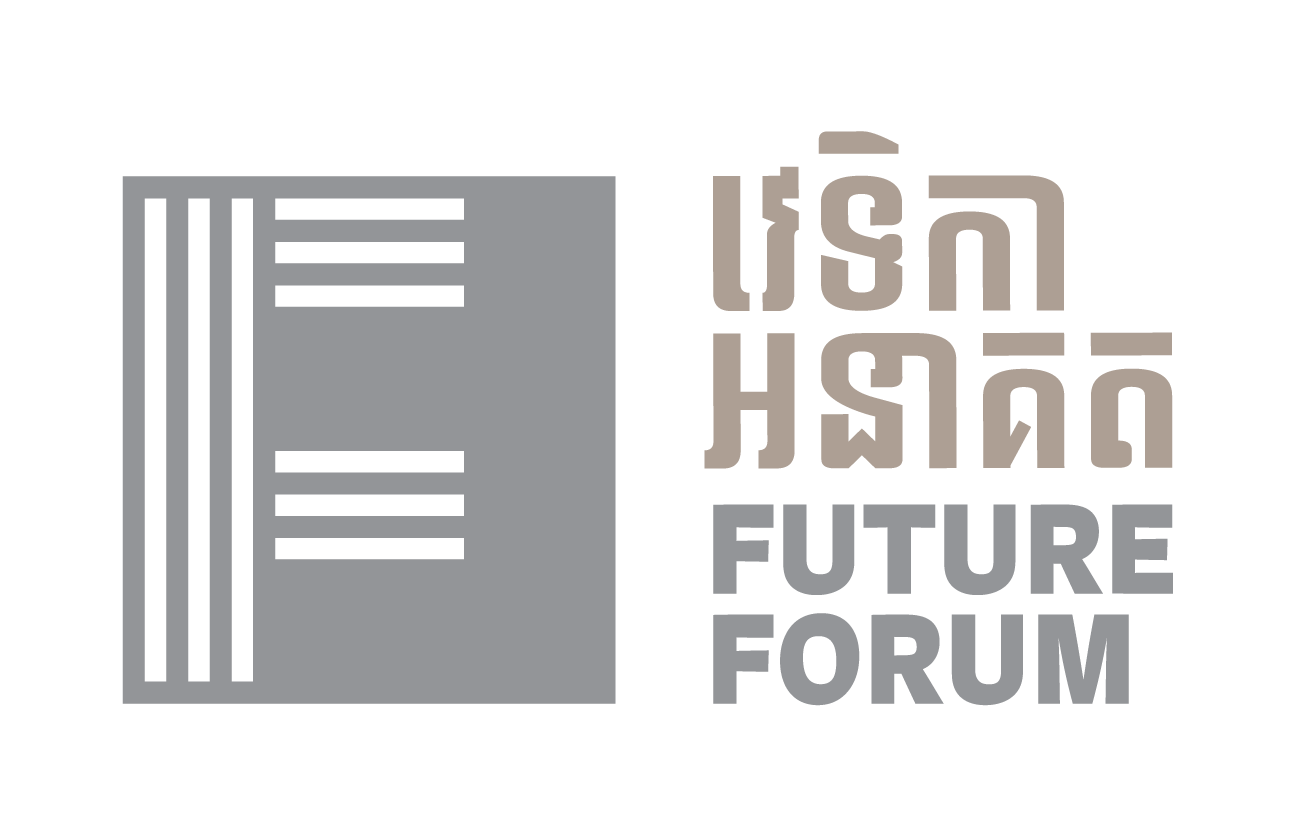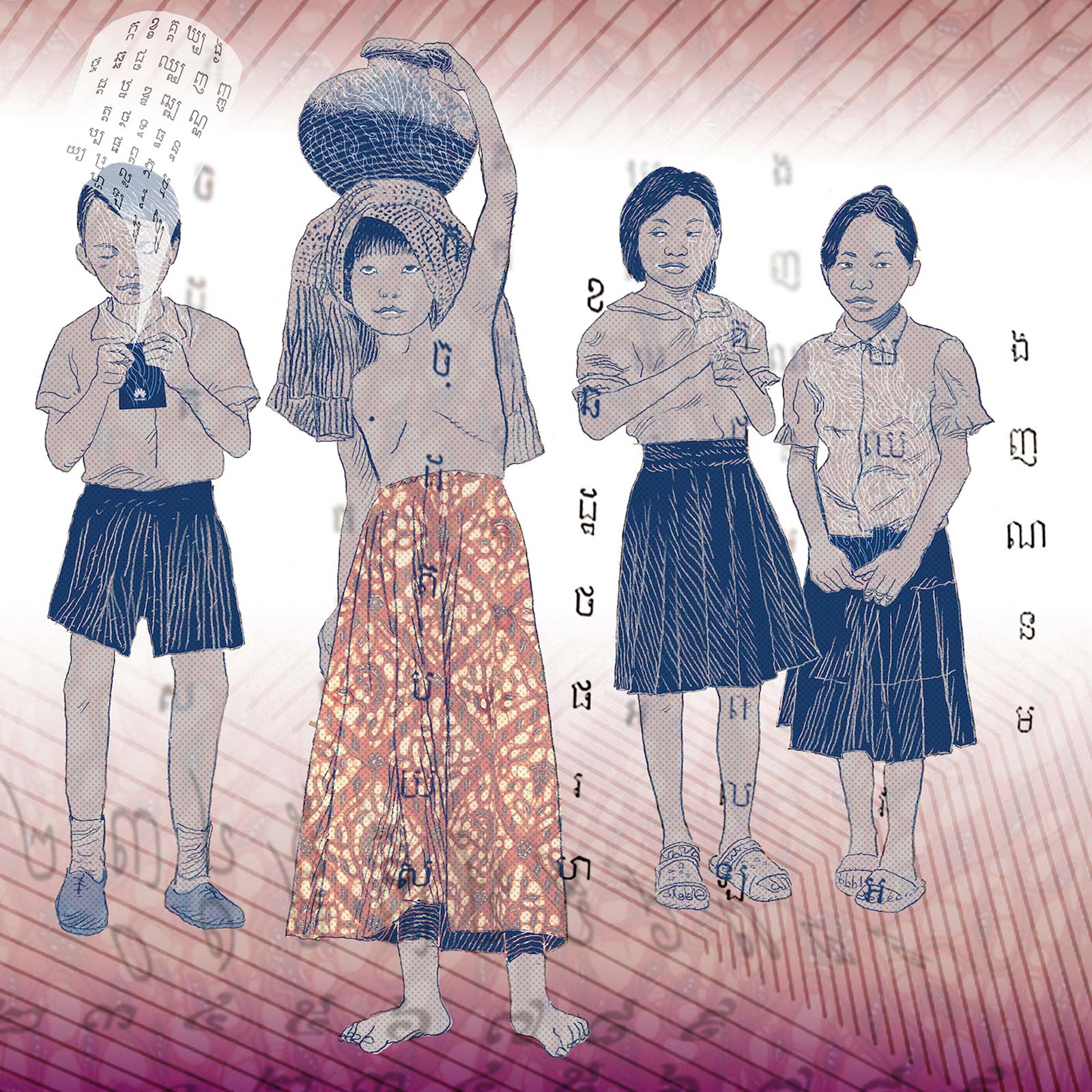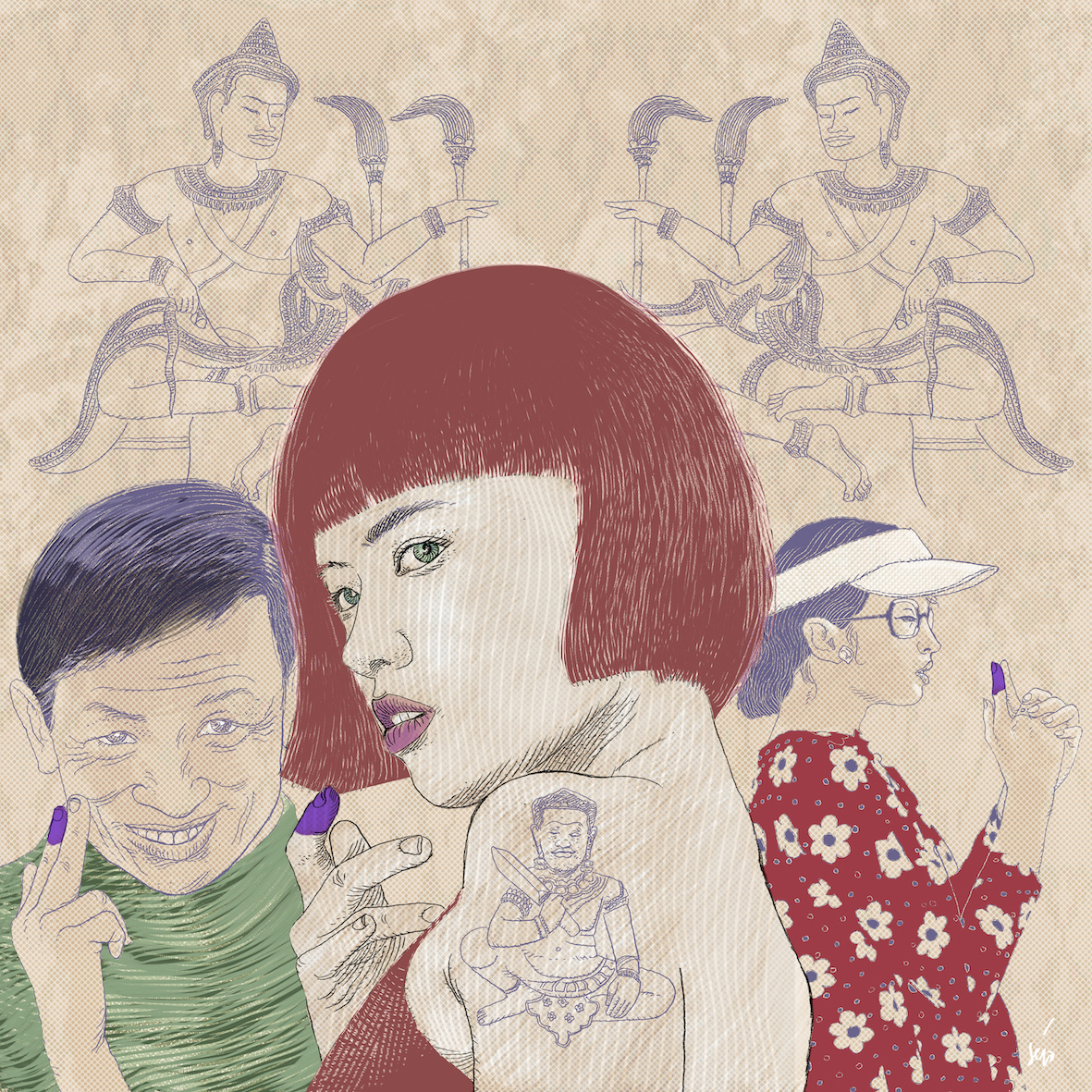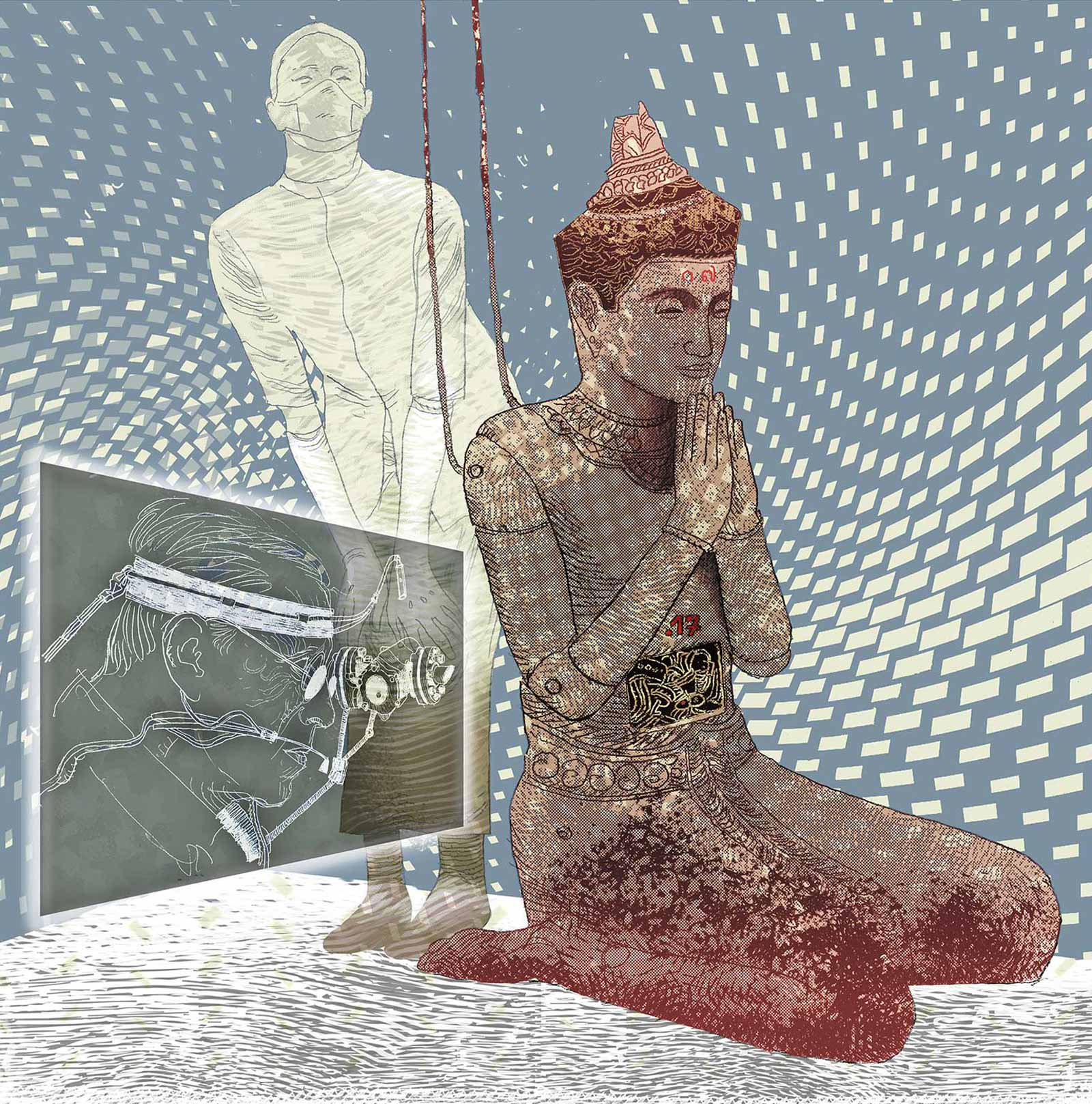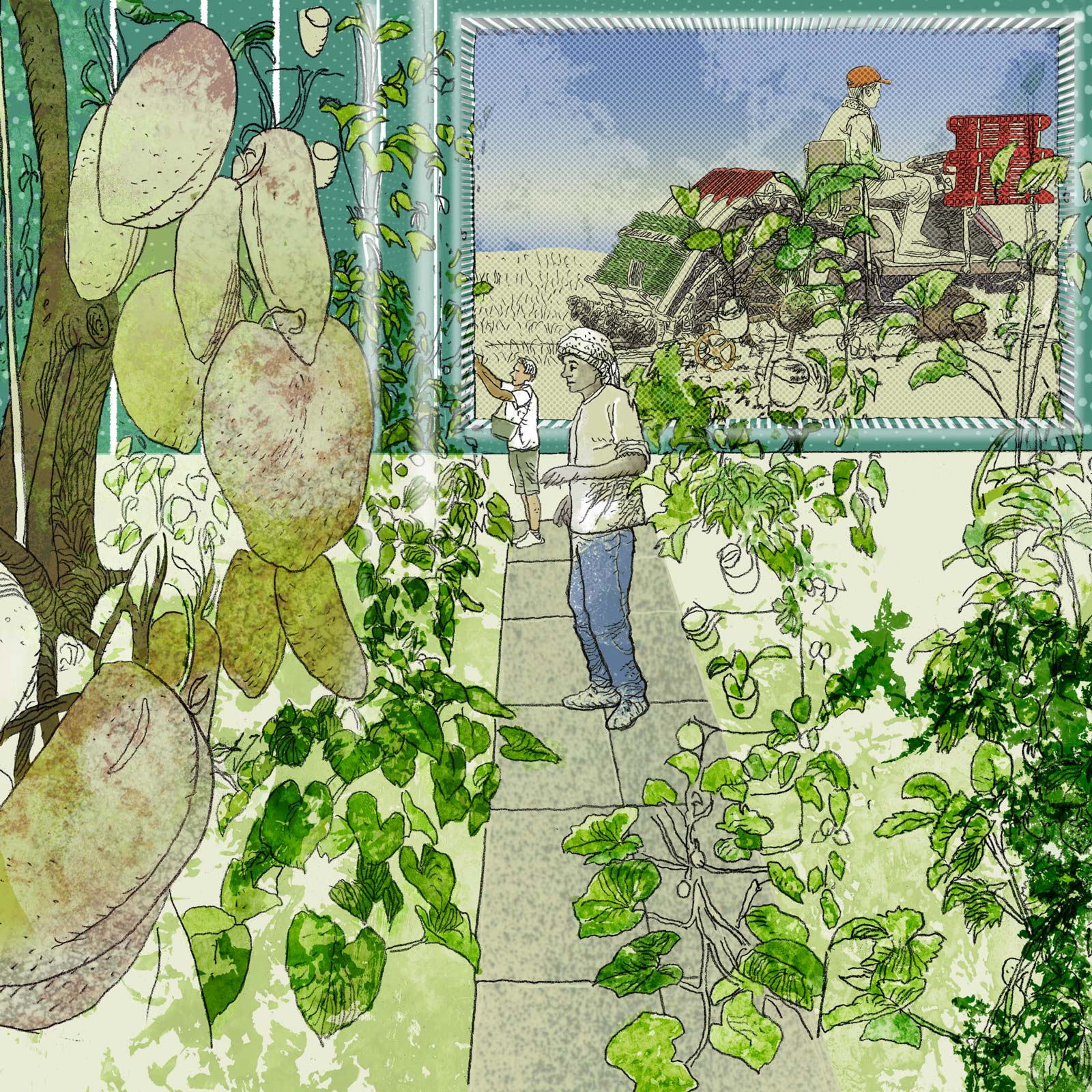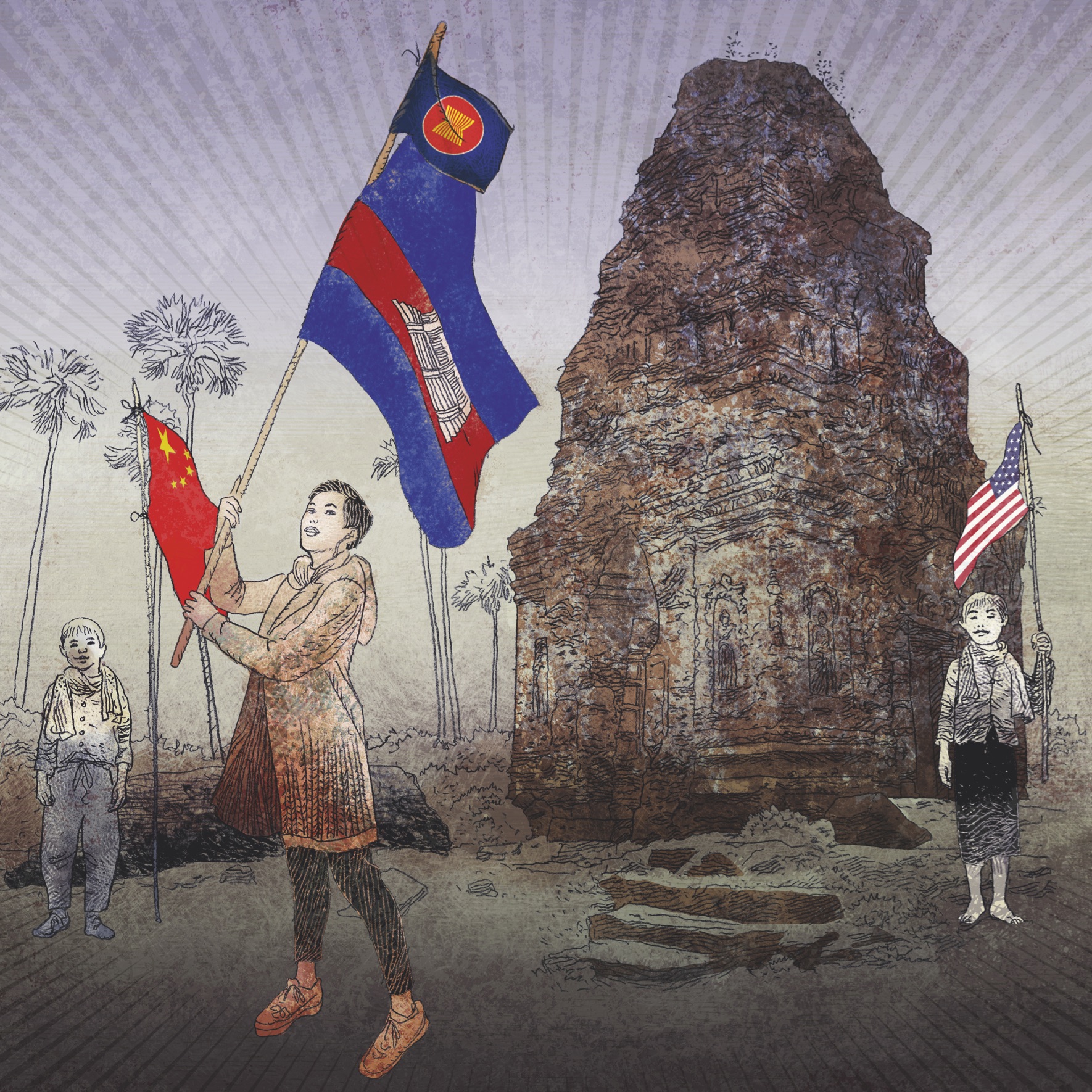Illustrations by Séra
When in 1982, Ridley Scott’s Blade Runner hit cinemas depicting a dystopian, neo-noir Los Angeles of November 2019 – a rain-drenched, shadowy city of skyscrapers and hover cars, populated by murderous androids – it was a distant enough future for it to remain just the right side of conceivable.
When the film’s 37th anniversary rolled around late last year, social media went into overdrive making tongue-in-cheek comparisons with the not-so-dystopian, but still bleak aspects of contemporary LA. But with California’s beach bum scene going strong, grid-locked traffic, and (relatively) benign robot population, few would argue Scott’s vision came to fruition.
Blade Runner was perhaps guilty of being overly ambitious in his prophesying, but this is a problem Phnom Penh-based think-tank Future Forum considered when settling upon two decades time for their Cambodia 2040 project – a collection of essays hypothesising about the Kingdom’s fortunes across key areas in the years to come.
“2040 is not too far [in the future] where there are too many unknown unknowns. If you go to 2050, there’s just too much we don’t know given the pace of change and technology,” says Ou Virak, Future Forum’s founder and president, as he sips his coffee in the trendy surroundings of creative hub The Factory on the outskirts of Phnom Penh.
“But I didn’t want the project to be taken by anybody as personal criticism either. In five or ten years, people still see themselves as part of the discussion. 20 years is distant enough so it detaches the current leaders participating in this dialogue from their personal views and situation.”
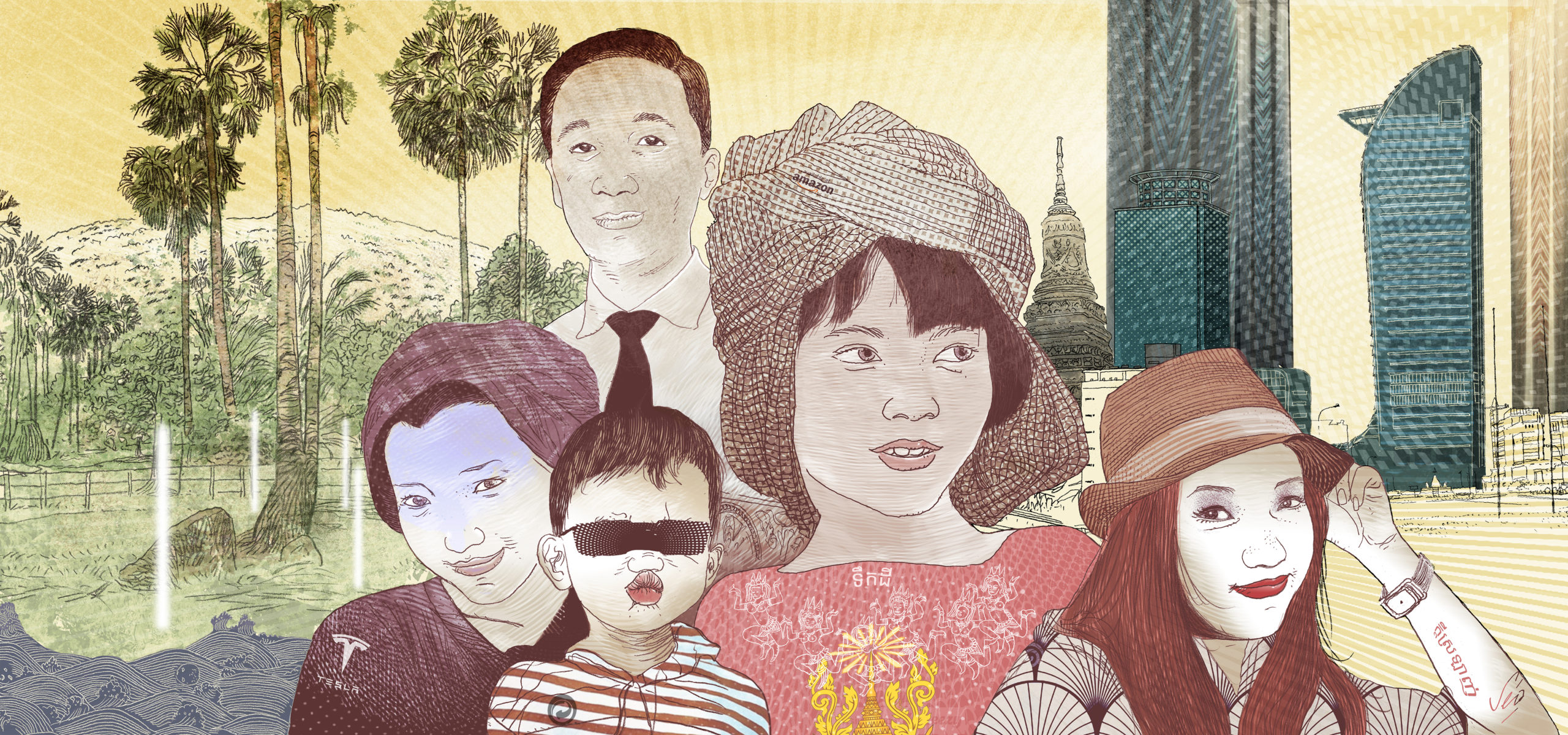
In essence, 2040 represents that efficacy sweet spot, allowing enough time to enact substantive change and somewhat remove personal interest from the equation, while not too far in the future that it becomes a speculative blur of abstractions.
This is a fundamental point for Future Forum, an organisation dedicated to a dialogue-centred approach to finding “concrete, creative and principled solutions to Cambodian policy issues”.
“If you go to any NGO forum, meeting, conference, the whole thing will be 95% problem statements. We feel that we are good human beings by discussing problems,” Virak says. “I think that’s human nature, and I think that’s a trap. So what we are doing at Future Forum is spending 10% of our effort discussing the problem, and 90% of our effort discussing the solution.”
This solution-oriented approach has also formed the basis of Southeast Asia Globe’s eight-week collaboration with Future Forum on Cambodia 2040.
Each based on a chapter featuring in the soon-to-be-published book, the articles have concerned themselves with offering best-case scenarios, as well as potential first steps to arrive there, across six key areas in the Kingdom.
When Southeast Asia Globe sits down with Virak, only two days have elapsed since the start of former Cambodian National Rescue Party (CNRP) leader Kem Sokha’s treason trial on 15 January.
Among the most pressing issues facing the Kingdom, the former opposition leader’s case was addressed in the law and governance (Under the gavel) segment of the series – which also concerned itself with answering how Cambodia can reform its bloated bureaucracy and entrenched patronage and corruption networks.
The government seems to be holding the trial hostage, using it as ransom in a way. They won’t announce the verdict [for Sokha] until after 12 February
Ou Virak, founder and president of Future Forum
In the eyes of many, Sokha’s trial represents a landmark case for the future of Cambodian democracy, governance and international relations. But for Virak, the trial’s outcome – acquittal or conviction – will merely illuminate the government’s wider strategy, providing little insight about the merits of the case against Sokha, nor the independence of the court judging him.
“The government seems to be holding the trial hostage, using it as ransom in a way. They won’t announce the verdict [for Sokha] until after 12 February,” he says, referring to the day the EU will make clear its decision on whether to withdraw Cambodia’s Everything But Arms (EBA) trade privileges to the 28-member bloc.
“When the fate of the EBA is announced, the government will have time to react. Regardless of what the government says, this [pressure on Sokha’s fate] will be felt by the EU and its members.”
Sokha’s trial and Cambodia’s EBA fate were two areas also touched upon in the series’ international relations segment (Cambodia and the great powers) exploring Cambodia’s ongoing struggle to balance relations between the superpowers.
The Kingdom’s formerly close ties with the US have grown strained in recent years, triggered in part by waning democratic space since Prime Minister Hun Sen and his ruling Cambodian People’s Party (CPP) cemented their grip on power following the CNRP’s dissolution in 2017. Strained relations with the West have only been compounded by warmer ties with China, which has risen in prominence and influence – both financially and politically – in the Kingdom over the past decade.
While China’s financial and political backing provides Hun Sen with the capacity to resist Western political pressure on issues such as democracy and human rights, critics have pointed to the vulnerable position this leaves Cambodia in as a potential patron-state.
But for Virak, both options – closer ties with the West or China – represent an outdated mode of thinking.
“How do we move beyond aid dependency? How do we move beyond just being satisfied with peace? These are questions that have been touched on before, but nobody seems to seriously think they are possible,” he says.
“Small states like Cambodia need to be nimble to manoeuvre to world events. That means we need to break away from our old mentality [of being dependent on outside support], and this is a problem that Future Forum will address in our future publications.”
While external forces continue to shape the Kingdom from without, from within, the need to reform and strengthen governance at all levels was a uniting message across each topic in the series.
In the future of energy and the environment (Cambodia’s green revolution?), Future Forum contributor Sam Art Chan talks of the need for a robust system of environmental governance that prioritises the responsible use of natural resources, and in the process curtailing current issues such as rampant illegal logging and the endangerment of communities along the Mekong.
In the future of agriculture (Hungry for change), Cambodia 2040 author Sokkea Hoy cites the need to drive down the cost of logistics and electricity – the latter in particular stunting growth in certain sectors as supply struggles to meet demand – for the Kingdom’s farmers as central to stabilising their uncertain prospects in the decades to come.
In the future of work (Get with the times), chapter author Leewood Phu advocates for a more digitally literate Cambodian society, something he sees as non-negotiable in a country whose workforce is highly vulnerable to the effects of automation, in a future that will live increasingly online. This, inevitably, is something that will only occur from the top-down through educational reform.
Virak agrees, saying that more effective and stronger governance is perhaps the most significant shift needed for a prosperous Cambodia in the decades to come.
“Governance is huge to me, but it requires patience and time to transition to proper governance,” he says. “How can we tackle it in a gradual way? In a holistic way? Everybody agrees we’re not going to put every corrupt person in handcuffs tomorrow, because if we did that we wouldn’t have anybody left to work.”
Referring to the greed, corruption and poor educational standards prevalent in Cambodian society – all issues contributing to the Kingdom’s poor governance – Virak says misguided values are at their core.
“If people still think that owning a humongous SUV is cool and hip, and attractive as human beings, then people will strive to achieve that, which to me is ridiculous. People think that having the title Oknha or excellencies is a value to strive for, but once you get it, what is it all about anyway?” he says. “I actually think arts and culture is the antidote, and a key public policy issue that we need to integrate into discussions. Unless we address art and culture in education, we won’t create creativity in our students,” he says.
This challenge to prevailing social mores and influencing attitudes to education and learning is addressed in the final segment of the Cambodia 2040 series, which examines the Kingdom’s faltering education system (Making the grade).
Setha Rath, among the chapter’s authors, believes that Cambodia should, first and foremost, invest in human resource development through the competitive recruitment, retention and capacity building of the Kingdom’s currently low-status, underpaid public school teachers. This could be achieved, according to Rath, by increasing their salaries, thereby incentivising and professionalising their jobs.
As the chapter stresses, this would also go some way to redressing Cambodia’s two-tiered school system that is currently divided along urban-rural, public-private lines, and is failing millions of the Kingdom’s poorer students.
But while Virak also advocates for educational reform, he echoes the sentiment of STEM Cambodia founder Allen Tan in the piece, who emphasises that a one-size-fits-all approach to schooling is misguided.
Like Tan, he calls for a more fluid approach to addressing Cambodia’s ongoing skills gap in the rapidly evolving global economy, calling Cambodia’s current status-seeking “obsession with degrees completely wrong”.
If there is to be a real political will to reform, there will need to be a crisis unfortunately. I don’t think humans have the capacity to reform without crisis
Ou Virak, founder and president of Future Forum
When asked in what areas he thought Cambodia was showing signs of progress, Virak puts down his coffee cup and looks pensive as he carefully considers the question.
“Cambodia is actually becoming a lot more equal in terms of access to information,” he says, before clarifying. “A bit more equal I should say. A bit better.”
Consequently, according to Virak, Cambodia’s general public is increasingly “demanding more” from their leaders.
“The beauty of this is that there’s a rapid improvement among the bottom 90%. Not just in terms of poverty, but also in terms of the ability to understand things related to the stupidities and absurdities [of certain areas of governance in Cambodia].”
He hopes that this access to information – this ability to comprehend and grasp certain contradictions, absurdities and hypocrisy inherent to virtually all governance worldwide – will give rise to flourishing self-deprecation and critique in the Kingdom in the decades to come.
“What I miss the most in Cambodia is parody,” he says. “Shows that make fun of absurdities. I think that a society that flourishes and is creative is one that is able to laugh at themselves. I think that’s what’s missing here. Maybe not enough people see parody as a valuable contribution to public discourse.”
But for now, in Cambodia’s highly sensitive political environment in which parody and critique are akin to treason, any chance of this level of self-reflection, and ultimately reform, remains a distant prospect.
For Virak, the desire for substantive change to governance, both from within the government and among the public, will only come when the status quo is no longer sustainable.
While he doesn’t support the withdrawal of EBA due to the “impact this will have on the poor”, he believes this could provoke the “mini-crisis” required for true reform.
“If there is to be a real political will to reform, there will need to be a crisis unfortunately,” he says. “I don’t think humans have the capacity to reform without crisis.”
This article has been researched and written in partnership with Future Forum, in the lead up to Future Forum’s Cambodia 2040 book launch on 22 January at the Raffles le Royal Hotel in Phnom Penh. Find out more here.
